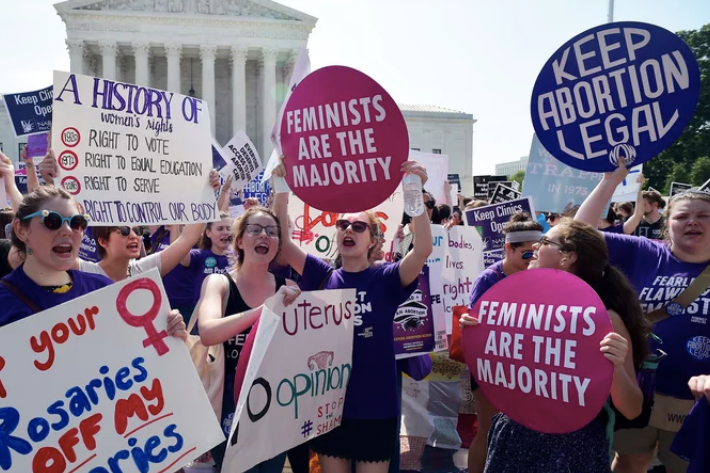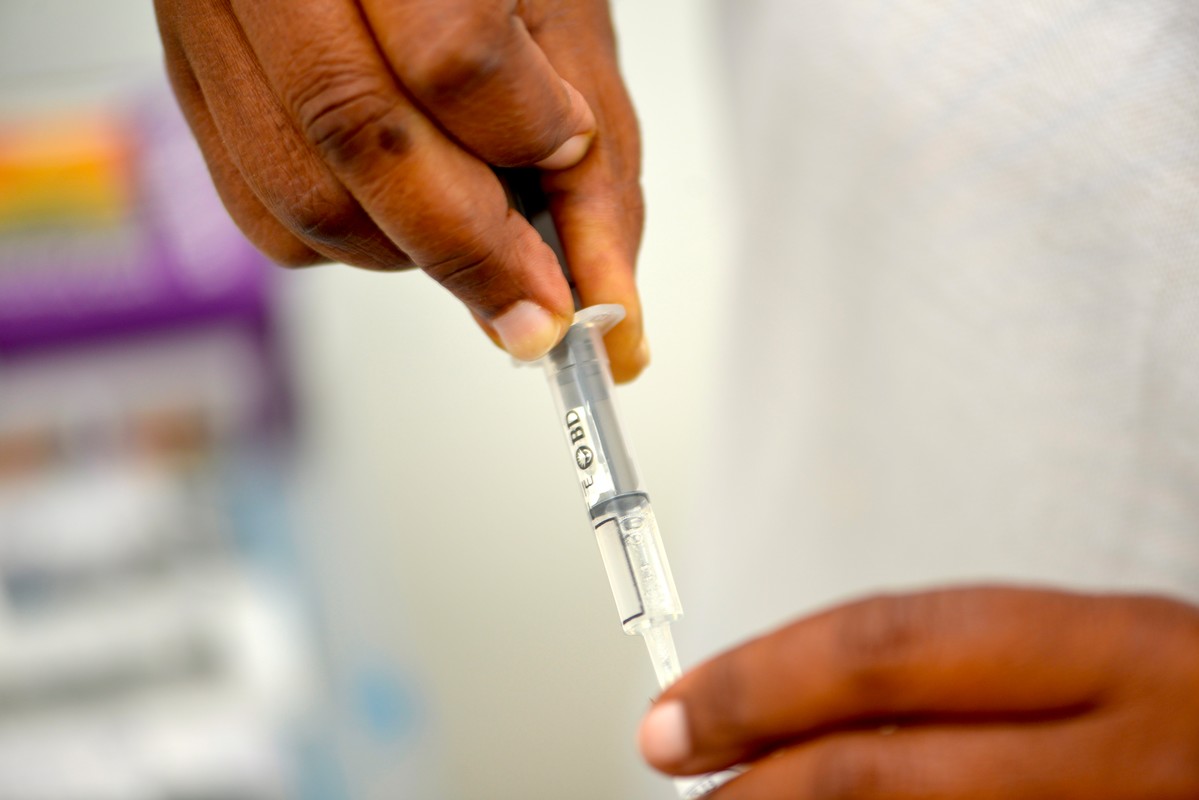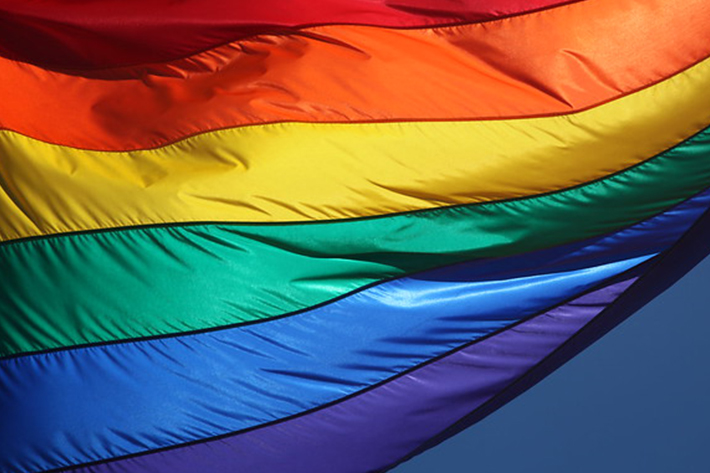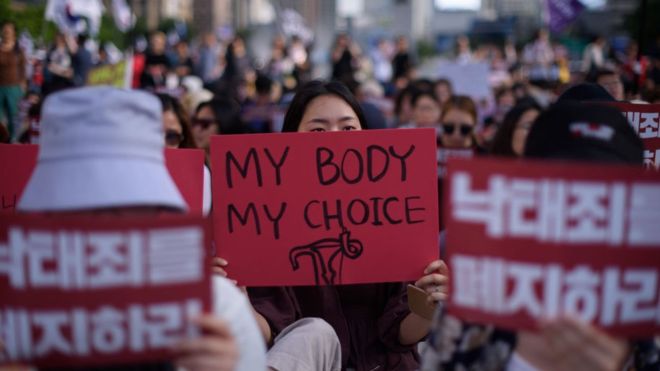
Spotlight
A selection of news from across the Federation

IPPF Statement on the 68th session of the Commission on the Status of Women (CSW)
IPPF welcomes the agreed conclusions of the 68th session of the Commission on the Status of Women (CSW), on the theme of “Accelerating the achievement of gender equality and the empowerment of all women and girls by addressing poverty and strengthening institutions and financing with a gender perspective”. IPPF actively engaged in the process by providing technical inputs to Member States, raising awareness about the interlinkages between SRHR, poverty, gender equality and the empowerment and human rights of all women and girls.
Filter our news by:


| 26 June 2019
BBC refuses to stop using medically inaccurate and biased language on abortion
The BBC has said it won’t stop labelling attempts to ban abortion after six weeks as “heartbeat bills” – despite conceding the phrase is biased and medically inaccurate. A coalition of four leading reproductive healthcare organisations – the Federation of Gynecologists and Obstetricians (FIGO), International Planned Parenthood Federation (IPPF), Marie Stopes International (MSI) and Planned Parenthood Federation of America (PPFA) wrote to the BBC, demanding it stop using the phrase in its coverage of attempts in some US states to introduce six week abortion bans. In its letter, the coalition pointed out: This description is biased, coined by opponents of safe and legal abortion in an attempt to frame the debate in their own emotional and empathetic terms. The American College of Obstetricians and Gynecologists (ACOG) has stated clearly that the phrase is medically inaccurate. Other news organisations, such as The Guardian, have already announced they would stop using the phrase and replace it with the factual “six-week abortion ban” Adding the words “so-called” or placing the phrase in parenthesises does not address the bias. In her reply, Fran Unsworth, BBC Director of News and Current Affairs said: “I quite understand the point you make about the use of the phrase “heartbeat bill” and we would not aim to adopt it as our own description of the legislation.” But she went on to say the term was “now in common usage” and the BBC would not stop using it. Dr Alvaro Bermejo, Director General, International Planned Parenthood Federation, said: “The BBC can’t concede “heartbeat bill” is a biased and medically inaccurate description and then say it’s going to use it anyway. Saying it is “in common usage” is no excuse, especially when the BBC – which boasted only last week that it has a global weekly audience of 426 million people – shares the blame for spreading it. Language around legal abortion has been weaponised by those who want to deny women access to it and journalists – especially those who work for a news organisation which claims to be impartial and trusted – must wake-up and see they are being played. This phrase was chosen very carefully by people who want to end access to legal abortion and who are exploiting the mainstream media to insert biased language into the common vernacular. It’s designed to hide the devastating impact on women of their plans and skew coverage. The right thing to do is to stop using it. We call on the BBC to think again.” Simon Cooke, Chief Executive Officer, Marie Stopes International, commented: “We are frustrated and disappointed by the BBC’s decision to continue to amplify a phrase which is not only medically inaccurate and overtly emotive, but which can put women’s health and lives at very real risk by increasing stigma. To fall back on ‘common usage’ as a defence legitimises and normalises anti-abortion rhetoric and further extends the chilling effect of restrictive anti-choice policies and views, especially when used by a globally respected and trusted media organisation such as the BBC. It’s sad to see antiabortionists so easily able to manipulate the mainstream media for their own ends.” Dr Leana Wen, President and CEO, Planned Parenthood Federation of America said: “As a physician, I know just how critical it is for people to have the most accurate information about their health care. At this moment when our rights and freedoms are under unprecedented assault, now more than ever, we must stand up to dangerous misinformation. As scientists and public health leaders, we have a responsibility to stand up and reject misleading rhetoric and we call on the BBC to adopt medically accurate and unbiased language.” For more information contact Tia Jeewa at IPPF on 0207 939 8227, or email [email protected]

| 13 June 2019
ECHO Trial results show urgent need for great efforts in HIV prevention
IPPF’s Director-General, Dr Alvaro Bermejo has welcomed the publication today (Thursday 13 June) of the results of the Evidence for Contraceptive Options and HIV Outcomes (ECHO) trial – but warned they show how much more must be done urgently to combat HIV acquisition and offer real contraceptive choice. The ECHO clinical trial compared three common methods of contraception – DMPA-IM, Jadelle Implant and Copper IUD - and whether any of them increased the risk of acquiring HIV among women and girls at high risk. It was conducted at 12 sites in four countries, across South Africa, Eswatini (Swaziland), Zambia and Kenya. More than 7,800 women took part in the study, for up to 18 months. The trial did not find a statistically significant difference in HIV risk between the contraceptive methods it evaluated. But during the trial 397 of the women who took part acquired HIV. Dr Alvaro Bermejo said: “This has been an extremely important trial and we are pleased to see the results published. We do need to analyse them in greater deal, but it is already clear that the high rates of HIV and STI infections among those women who took part - despite individualised prevention efforts - represent an urgent cry for the integration of sexual and reproductive healthcare and HIV prevention. The results do not point to DMPA causing the increase in the risk of HIV infection some had feared, but the study has drawn attention to the many women – and countries – who have, in reality, a very limited choice of contraceptive methods available and the problems that causes. We have to ensure that a range of contraceptive options and the best counselling is available to women and girls who seek to prevent pregnancy and to protect them from HIV infection. That requires more investment , more coordination and prioritisation of sexual and reproductive healthcare.”

| 11 June 2019
Botswana High Court rules ban on sexual relationships between same sex persons is unconstitutional
IPPF has welcomed the news that Botswana’s High Court has overturned a ban on same sex relationships. The court ruled the law used to criminalise same sex relationships unconstitutional. “Botswana has done it, yes the good work starts here and now,” said Una Ngwenya, Executive Director of the Botswana Family Welfare Association, IPPF’s member organisation in Botswana. Monica Tabengwa, one of the first leaders of LeGaBiBo (Lesbians, Gays and Bisexuals of Botswana), the main SOGIE organisation in Botswana, said: “All our work has been proven worth it through this decision.” Botswana’s Government can challenge the decision in the Court of Appeal. Monica added an appeal was unlikely, and would fail in any case. She said: “If the Government does decides to appeal, it may not be a bad thing, as a defeated challenge would strengthen today’s decision even further.” The Botswana law is more or less a copy of the law in many other former British colonies introduced during colonial rule. The judgment equals the India Supreme Court judgment last year, which stated that colonial era laws did not ensure human rights as expected under post-colonial constitutions. IPPF’s Director General Alvaro Bermajo said: “We recognise today’s ruling as another milestone in the fight to reduce discrimination in Botswana and hope it will serve as an encouragement to those fighting similar laws in other places. We salute Botswana on this decision and hope it will lead the way for others.” Image by torbakhopper

| 17 April 2019
The introduction of Brunei’s new law – stoning as a death sentence – is a gross violation of international human rights
The International Planned Parenthood Federation along with its 134 Member Associations all over the globe, call on the government of Brunei to immediately stop the implementation of the Islamic Penal Code which severely punishes consensual same-sex acts, pregnancy out of wedlock, access to abortion and adultery. IPPF believes that such Penal Code is in direct violation of fundamental freedom and international human rights instruments such as the Universal Declaration of Human Rights (UDHR), Convention on the Elimination of All Forms of Discrimination Against Women (CEDAW) and Convention on the Rights of the Child (CRC). IPPF, as a human rights defender, strongly oppose any violation of fundamental human rights. As rightly said by the UN High Commissioner for Human Rights Michelle Bachelet, the new penal code would “mark a serious setback for human rights protections for the people of Brunei if implemented”. Further, such laws disproportionately discriminate against the most marginalized in our society, the women, girls and people of diverse sexual orientation, gender identity and expression, increasing the risk of further inequality, stigma and violence towards these groups. We urge the government of Brunei to protect the sexual and reproductive health and rights of all women and girls, and LGBTI communities - to be equal in rights and before the law – ensuring the rights to privacy, freedom of expression and free from violence and harassment are upheld. IPPF and its Member Associations will continue to fight for change to ensure all people can live free from sexual and reproductive coercion, and all forms of gender-based violence. IPPF through its member associations shall remain vigilant to oppose such harmful and regressive laws all over the world. International Planned Parenthood Federation (IPPF) IPPF is a global service provider and a leading advocate of sexual and reproductive health and rights for all. We are a worldwide movement of national organizations working with and for communities and individuals. Photo by torbakhopper

| 11 April 2019
IPPF welcomes South Korea's historic decision to overturn abortion ban
The International Planned Parenthood Federation (IPPF) has welcomed the historic decision made by the South Korean Constitutional Court today overturning a decades-long ban on access to abortion. The court has ordered that the law must be revised before the end of 2020. The current ban – in place since 1953 – criminalises abortion except in cases of rape, incest or risk to health. Women who have abortions and doctors who perform them can be jailed. Dr Alvaro Bermejo, Director General of IPPF said; “This is wonderful news. No women or girl should be coerced through a full pregnancy against her will and no medical professional criminalised for giving care. Extreme laws only fuel unsafe abortions which kill and injury women. I congratulate all the activists, particularly the Korean Women’s Association United, to which the Korea Population Health and Welfare Association (KOPHWA) – IPPF’s Member Association in South Korea – is related, for their united movement and successful advocacy for this change. We are keen to support Korea’s process to put this decision into practice as soon as possible. IPPF has experience of working in countries where similar historic change is taking place, such as Ireland. As a global federation of Member Associations, we can offer support experience and knowledge.” Ms Kyung Ae Cho, Secretary General of KOPHWA said; "It is a moment of momentum for women's health and reproductive health rights. We need systematic efforts to provide Integrated sexual health and reproductive health services for women's health in the future."

| 03 April 2019
IPPF welcomes the historic Political Declaration adopted at the UNCPD
The agreed historic Political Declaration was unanimously adopted at the beginning of the Commission of Population and Development (CPD) at the United Nations in New York, which takes place between 1-5 April 2019. 2019 marks the 25th anniversary of the adoption of the Programme of Action of the International Conference on Population and Development by 179 UN Member States in Cairo, Egypt in 1994. HE Courtney Rattray of Jamaica, Chair of the Commission, explained that the political declaration: • Reaffirms the commitment to the ICPD Programme of Action • Highlights the value of regular regional reviews • Welcomes progress made so far in implementation of the ICPD Programme of Action and the Sustainable Development Goals (SDGs) • Calls for accelerated implementation of the Programme of Action, without which the SDGs will not be met • Underlines the critical role of partnerships with Civil Society and Foundations • Encourages Governments, the UN System and International Financial Institutions to assist developing countries in implementing the Programme of Action through technical assistance and capacity-building • Emphasizes the importance of high-quality disaggregated data for measuring progress towards achieving the SDGs • Calls on UN System, all sectors of civil society, including non-governmental organizations, to fully commit and intensify their efforts for the full, effective and accelerated implementation of the ICPD Programme of Action and 2030 Agenda for Sustainable Development As stated by Dr Natalia Kanem, Executive Director of UNFPA: "The political declaration shows that what unites us is stronger than what divides us. ICPD is a benchmark for certain truths on which we can all agree: No woman should die giving life. Individuals and couples should be able to choose whether or when to have children and how many they will have. No one should be subjected to gender-based violence." Following the session, Dr Alvaro Bermejo, IPPF Director-General said: “IPPF and civil society were fundamental for achieving the Cairo commitments of ICPD. 25 years later, we reaffirm our commitment to work tirelessly every day, everywhere to make those commitments a reality to all people and to make sure that women’s rights are realised and that Agenda 2030 is achieved.”














